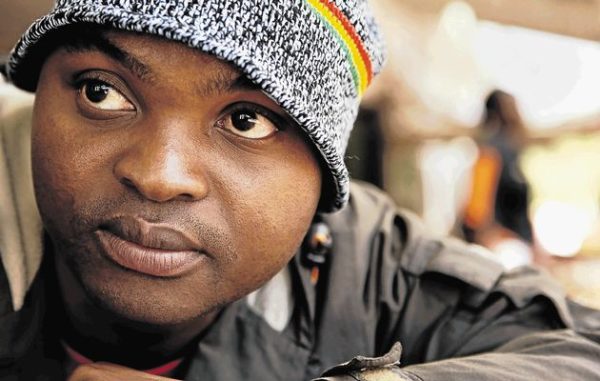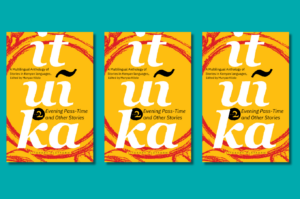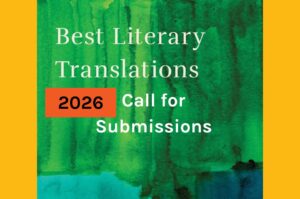
A keynote speech delivered by the South African novelist Niq Mhlongo—author of Dog Eat Dog (2004), After Tears (2007), Way Back Home (2013), and Affluenza (2016)—at the BRICS 2017 Literary Forum in Zhuhai, China on 15 December 2017.
Cleansing the Past and Restoring the Truthful Reality
Thirteen years ago in 2004, my first novel Dog Eat Dog was published by Kwela. I was still an intern journalist with Fair Lady magazine in Cape Town. This is what happened on the day of the launch. The event was scheduled to start at 6:30 PM for 7:00 PM at the National Library, along Queen Victoria Street in Cape Town. One of South Africa’s most famous authors, Andre Brink had agreed to do an introduction about my novel. I was regarded as the new young black writer who had come to the surface. By then, only Phaswane Mpe and K. Sello Duiker were the most known young South African writers.
But here is my dilemma. On the day of my book launch, Fair Lady magazine had organized a lavish Golf Day at the Paarl Golf Course, about 60 KM from Cape Town. The special guest was Natalie du Toit—The Champion. Natalie was the hottest property in 2004. She had just won gold medals for swimming at the Commonwealth Games, the All-Africa Games, and the Paralympics. Everyone around the world wanted to take a picture with her. She also had just been voted amongst the top 100 South Africans by the SABC, our national broadcaster.
As an intern, an opportunity like that is something you don’t want to miss. I was hoping to be the one to write about Natalie. She was also selected to be on the cover of our magazine by our team. Imagine what such a byline would do to my budding career. My internship was about to come to an end in a month’s time. Other magazine publications such as True Love and Drum would be after me, I thought. Now you understand why I so badly wanted to attend both the golf event and my book launch.
I sat down and weighed my options. If told Troye or Ann (my sub-editor and editor) about my book launch, I thought they might advice me not to go to the Golf. Which might ruin my chances of writing such a great story about Natalie. So, I decided not to tell them. Anyway, the book launch would start only at 6:30 PM. The golf event would be long finished by then, I told myself.
So, by 7 AM the Fair Lady team was at the golf event in Paarl. The theme was about “making it against all odds.” This was inspired by the fact that in 2001, Natalie had a horrible motorbike accident which led to the amputation of both her legs. Against all this, she went on to win those medals.
My publisher started calling me at 5 PM, and I was still in Paarl. She had every right to panic because they had secured Andre Brink to grace my launch. I told them that I was on my way. It was a lie. The golf event was still on, but about to finish. I didn’t have a choice. Remember, I had used Fair Lady transport to the venue. I had to wait until the event was officially finished as we only had one driver. So I waited. I needed that story to lift my career. My sub-editor had offered me to write it. She had told me that if she liked my approach to the story, she would publish it, or we could at least be co-writers.
We only left Paarl at about 6:20 PM, and the traffic was heavy along the way. My publisher kept calling, and offered to come pick me up wherever I was. I estimated to her that I would be at the launch venue around 7 PM. But when 7 PM struck I was still negotiating the traffic along Bellville, about 20 KM from Cape Town. My event had already started. Andre Brink and my publisher were doing it on my behalf.
I finally arrived at the venue at about 8:30 PM, and my event was officially over. To my surprise, only a few people had left the venue. The majority was still there, eagerly waiting to see this new writer who missed his own debut book launch. Another surprising thing for me is that these were all white people, and it was happening in Cape Town. There were about twenty of them.
I went to Andre Brink to tell him that I was Niq Mhlongo and to apologize for not making it in time for my own launch. Jokingly, he replied: “Are you sure you’re Niq?” My publisher and Andre started to tell me how my book launch went. On the pictures that my publisher showed me I could spot a few black faces that also came to the launch. I could understand why they could not stay around. There are reasons for that. One possibility is that I came late of course. Another is that the venue was awkward for them. Cape Town was, and is still, known for its racism. It is designed in such a way that you feel not welcomed as a black person. I studied and lived in Cape Town for a while, so I felt these apartheid racial divisions all the time. Black people live in the periphery of the city and are only welcome in the city as laborers. Even the public transport system timetable is designed in a way that favours segregation.
But here is a beautiful thing. I was given a copy of my book that everyone in the audience had signed, including Andre Brink, my publisher, and the catering people. That copy became a treasure. When my internship ended, I had to leave Cape Town to my home in Johannesburg. If you’re wondering, my Natalie story was also not published.
In Johannesburg I went to live in my home in Soweto with my cousin. Within a week, my treasured signed copy of Dog Eat Dog went missing. When I asked my cousin about it, he casually said, “I borrowed it to a friend in our street.”
I was very angry with him. I had just got an invitation to do a reading at some French school in the affluent suburb of Morningside. I was planning to read from that only copy, and I was to be paid three hundred rand. So, I asked my cousin to fetch my copy from his friend. He came back with sad news. His friend had borrowed another friend of his my copy. After being sent from pillar to post I decided to buy a new copy.
You might be wondering why I’m telling you this story. Some of you might have already figured out that I’m using this episode as an illustration of the far deeper overview of the new developments and energies of South African writing and reading culture in the post-Apartheid era. The situation is no longer like when I started in 2004 with a very small black readership and few authors. There is a wave of new fiction and non-fiction coming from South Africa at the moment. The new, young generation of writers is experimenting with new genres of female sexuality, drug use or abuse, political corruption, racism, homelessness, poverty, xenophobia and homophobia. They are on a mission to reshape our history which was distorted and defiled by the wrath of colonialism. This new wave is confronting the colonial system that is still entrenched. They write to heal the scars, and to provoke changes within the South African literary landscape that is still dominated by whites. For example, when I was published in 2004, the majority, if not all, publishing houses in South Africa were white owned. My own publisher, Kwela, is white with a black name. The difficulty in 2004 was that the few black writers like me were expected to write stories that would appeal to the white masses and not provoke the status quo. We also carried the burden of being the “so-called spokesperson” of the black communities.
From roughly 2006 onwards, we have witnessed new black-owned publishing houses and a number of new authors who came out to share such burden with us. To mention but a few, Black Bird and Geko have published authors such as Panashe Chigumadzi, Nakhane Toure, and Sabata Mokae respectively. These authors are now household names and have won major literary prizes. Some authors who have also come out strongly during this new wave of South African writing include Nthikeng Mohlele (Pleasure), Mohale Mashigo (The Yearning), and Yewande Omotoso (The Woman Next Door), who was recently been longlisted for the International Dublin Literary Award. In poetry we can mention poets like Koleka Putuma (Collective Amnesia) who is garnering national and international prizes.
Many of these authors are building their audience at home, where there is a growing appetite for fiction that addresses contemporary issues. As indicated earlier, thematically and stylistically diverse fiction is emerging in South Africa. The newly formed Abantu Book Festival attracted around twenty thousand book readers in its first year last year. The majority, if not all, of these people were black. This festival was formed by author Thando Mgqolozana to cater for the marginalized black authors and readers away from the mainstream white literary festivals. It was the first, and so far only, major literary festival to be held in Soweto. A few years ago, this was something unthinkable, but today everyone is looking forward to the Abantu Festival.
Something bizarre and pleasant happened after my session last year at Abantu. A young man, who had attended my conversation with Fred Khumalo, came to me and said he wanted to speak to me about forming a book club. He was and still is a student from the University of Pretoria. He is originally from the coastal town of Esikhawini in Richard’s Bay, roughly 600 kilometers from Johannesburg. He told me he had been following my work since he was in high school, and had read all my four books. He had been praying to meet me one day, he said, and Abantu Book Festival had created that platform. Then during our conversation, something happened. The student gave me a gift, which was an old dog-eared copy. Guess what—it was the signed copy of my personal Dog Eat Dog which went missing some twelve years ago.
“Where did you get it?” I asked.
“From my aunt in Umlazi in Durban.”
Umlazi is another coastal township in Durban and about 600 KM away. I didn’t know what to say as I was overwhelmed by emotions. So my personal treasured copy had been traveling. I could see that it had been read because most passages on it were underlined.
In conclusion, what does all I’ve just said mean about our theme today—“New Area, New Experience, and New Imaginations”? I think an event such as this must speak to such new breeds of authors and readers. BRICS Literary Forum must seize the opportunity of this flourishing scene that is giving rise to some of the most groundbreaking and boundary pushing fiction in South Africa, and in all the BRICS partners. In South Africa, we have already witnessed how most black South African youths are tired of being victims of intellectual dishonesty, and are demanding a measure of expiation. We have heard loud, relevant, uncomfortable, and angry questions that rose during the Decolonization, Fees Must Fall, and Rhodes Must Fall discourses. These are the voices that are saying urgently to us: It is time to rebuild. We are tired of colonial exploitations, cultural oppression, racial arrogance and hypocrisy, of which we have been victims for centuries. South Africa, and Africa at large, is peopled by a race which has contributed something positive to the world’s pool of knowledge.
As South African authors, we have a good reason to rejoice over the formation of this relevant BRICS Literary Forum. For me, this could open the doors to humane ideas and transform our respective countries into another new world. Therefore, I see this Forum as a means of contesting that aspect of my country’s reality, which constitutes a greatest threat to our actual existence as authors. The gain from this is both yours and mine.
Thank you.









COMMENTS -
Reader Interactions